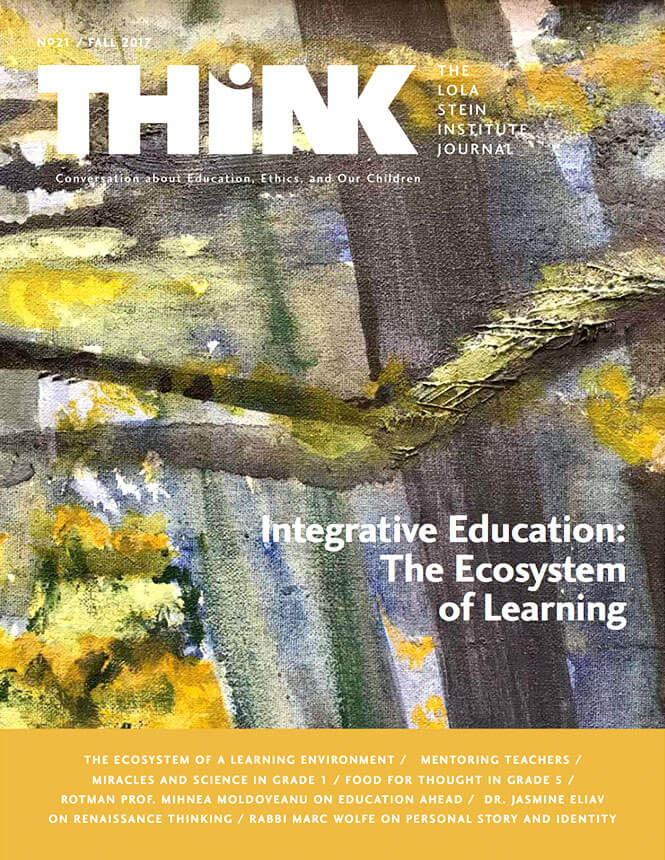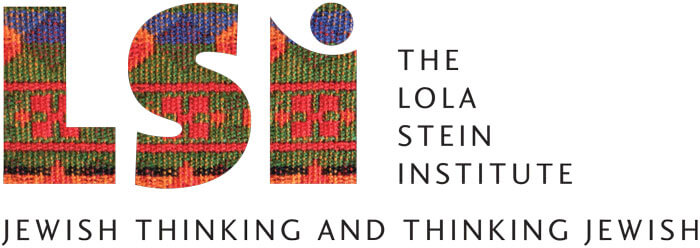- How We Teach

- First Column
- Second Column
- Third Column
- Case Studies

- First Column
- Second Column
- Culture & Community

- First Column
- Second Column
- News & Views

- Admissions

- First Column
- Second Column
- Support Us

- About

- First Column
- Second Column
- Parent Hub
- Attend an Open House
- Take a Tour
- Donate Now
- Calendar
- Blog
- 416-635-1876
- Search
Transcendental Learning
Re-Designing Formative Education on the Eve of the Fourth Industrial Revolution
A Great Disruption is Afoot ….
A fundamental shift in underway in how we add value to the world. It has broad implications for the significance of useful, meaningful human work. Three forces are acting in synergy to change how we think about intelligence, ability, skill, and talent – and how we assess the educational experiences we rely on to cultivate them:
- The automatization of work through machine learning and the evolution of the Internet of Things renders obsolete our customary assessments of “skill”, “intelligence,” and “knowledge” and challenges current approaches to education in ways we have never experienced as a civilization.
- The socialization of work places unprecedented importance on a new set of skills: dialogue, emotional intelligence, relationship and perception sit at the new apex of desired capability; 80% of human work is now done in groups, compared to 30% just 20 years ago. Our educational system is woefully unprepared to address this.
- The globalization of work makes subcontracting to human groups and machines anywhere in the world easy and transparent; the widening range of options for comparative advantage renders the speed of our educational shift especially important.
… and the $5Trn Global Educational Machine is Not Equipped to Handle It
The educational machine is segregated, specialized, and institutionalized for patterns of teaching and learning that are unchanged since the 1200s. Primary, secondary, and tertiary education remain characterized by:
- The cultivation of specialized skilled and knowledge in discrete disciplines and professions.
- An emphasis on skills that are increasingly off-loadable to machines that are powered by easily accessible knowledge and data bases and self-refining algorithms.
- A self-referencing emphasis on the perpetuation of existing educational structures and practices that is unlikely to adapt either to new ways or to the shorter time frames in which conceptual, technical and social novelty emerge; this reluctance to change encompasses institutions, disciplines, professions, ways of teaching and learning, and language systems.
- An emphasis on imprinting, recall, and the reproduction of knowledge at the core of its evaluation, selection, and promotion systems of both students and instructors; this long-term dependence strongly resists updated modes of appraisal and validation.
One must be careful to only invoke the “desperate times call for desperate measures” rationale when matters become close to desperate.
We are close. Here is why:
- Despite decades of fair warning, education today does not strive to anticipate the demand for new skills for valuable work that is now with us. The job or profession your favorite learner is being prepared for will very likely be performed by a machine. Simulations of automation-driven job loss range between 35 and 50% for developed economies like those of Canada, the US, Britain and Japan;[1] and McKinsey & Company studies place figures closer to 60%.
- The procrastination-justifying claims algorithms work replace only mechanical, menial, and automatic tasks is invalid and misleading. High-end, high-value- added work is now within the domain of next-gen machine-learning agents. For example, efforts for machines to construct legal memos and briefs, accurately diagnose certain skin lesions, and create financial models and business plans are outperforming expectations.
- Progress in algorithmic agents’ ability to replicate human performance is rapid and nonlinear; current estimates of machine-driven shifts in labour markets are likely very conservative. The simulations and studies above are based on technology estimates from 2013 to 2016.
Quo vadis? Where does this leave a primary and secondary education system that is meticulously optimized to ensure learners succeed on standardized instruments of measurement and still earnestly promotes the belief that these tests enhance admission to a tertiary education system which, itself, currently seems on a path to nowhere?
Transcendental Learning is Key to Human Capability Development in the New Skills Landscape
The word “transcendental” has several meanings. Its meaning here is based on the word’s secular use in philosophy and refers to “surpassing” and, more particularly, to something “beyond the contingent or accidental in human experience, but not beyond all human capacity.”
A thoughtfully re-designed formative learning experience will be transcendental because:
- It will emphasize the development of skills that are quintessentially human—non-algorithmic—and thus transcend implementation on server clouds powered by Azure, TensorFlow, Watson, and CaffeAI.[2]
- It will emphasize the development of skills that reach beyond patterns of thinking and interacting that serve only single academic fields or cultures, and thus transcend disciplinary and professional reasoning patterns and language systems.
- It will emphasize the development of ways of being and learning that will become a lifestyle beyond the years and environments of school and university, and thus transcend the current temporal, geographic, social, and institutional circumstances of each learner.
- It will emphasize the development of skills for dialogue, relationality, and collaboration that will enable learners to adapt continuously across changes in industry, technology, and knowledge base, and thus transcends the boundaries of current organizations and institutions which, for the first time ever, die off more quickly than do individuals.
To deliver on the promise of transcendental learning, “teachers,” “instructors,” and “professors” must immediately transform; they must become learning experience designers who bring learners together in collective experiences that develop the human skills that algorithms cannot (yet) replicate. These designers will require the vision of curators, the insight of phenomenologists, and the semantic probity of masters of dialogue. Their teaching method will be dialectical, supporting learners to inquire and discover for themselves inside environments that can nevertheless track progress.
The Core Elements of Transcendental Learning
To make transcendental learning real, learning experiences must incorporate three essential aspects.
- Transcendental learning is social: it leverages groups of learners, working together to make clear to one another concepts, models, methods, and ways of being and thinking. Dialogue and collaboration prepare learners for an intellectually, culturally, and affectively diverse work place.
- Transcendental learning is purposive and relentlessly integrative: the problems we need to solve as individuals, organizations, institutions, and societies do not come parsed and chiselled into neat textbook puzzles, the current fodder of teaching and research everywhere. These problems transcend the boundaries of knowledge fields; so should our learning.
- Transcendental learning is multi-modal: while letters and numbers have been privileged, since the invention of the printing press, as the lingua franca of teaching and learning, Facebook, Snapchat, Instagram, WeChat, YouTube, and Twitter have changed all that in the social and professional spaces; learning should follow suit.
Let me end with a puzzle in the form of a thought experiment, which may be relevant to the discontinuity we are running into somewhat obliviously. Suppose you are told that on July 10, 2018, inductive inference – the pattern of thinking by which we make (often but not always correct) predictions of future behavior on the basis of observations of past behaviour – will cease to work. All bets will be off in predicting sunrises, the response of your car to a bump in the road, or the behaviour of your surgeon, beekeeper, accountant, or psychoanalyst. You have less that one year to figure it out, not much more than 200 days. What will you do tomorrow – the day after which you will be left with one day less?
[1] K.B. Frey and M. Osbourne, “The Future of Employment: How Susceptible Are Jobs to Computerisation?” (working paper, Oxford University, School of Engineering Science, 2013).
[2] Note to parents and educators: If “Azure,” “TensorFlow,” “Watson,” and “CaffeAl” do not sound as familiar as Word, Excel, and PowerPoint, they should: they will provide an ecosystem of machine agents that can soon replace all the skills that the current educational system offers your favourite learner…and so we ask: What are we preparing our learners to do-and, why?
Mihnea Moldoveanu is Vice-Dean of Learning, Innovation and Executive Programs, Desautels Professor of Integrative Thinking, and Director of the Desautels Centre for Integrative Thinking and of the Mind Brain Behavior Institute at the Rotman School of Management, University of Toronto. He trained as a classical pianist at the Royal Conservatory of Music in Toronto, an engineer at MIT, and an applied epistemologist at the Harvard Business School at Harvard University. He is a serial technology entrepreneur, having founded and built Redline Communications Inc. (TSX:RDL), one of the world’s leading manufacturers of broadband wireless equipment and networks, and Hefaistos, Inc., designer of the world’s first soft-DSL modem. He was selected as one of Canada’s Top 40 under 40 in 2007. He is deeply grateful to the Editor of THINK and to The Lola Stein Institute for this opportunity to apply his ideas and inquiry to the civilizationally critical fields of primary and secondary education.
PREVIOUS ARTICLE
Food for ThoughtNEXT ARTICLE
Who Tells Your Story? Who Tells Ours?Special Feature
Satisfaction GuaranteedFood for ThoughtMatter, Metamorphosis, and Miracles in Grade 1The World Is My TeacherIntegrated Learning at The Toronto Heschel SchoolBeyond the BuzzOur Sages Tell Us
The 21st Century Renaissance ThinkerChaos and OrderNarrative and IdentityWho Tells Your Story? Who Tells Ours?Re-Designing Formative Education on the Eve of the Fourth Industrial RevolutionTranscendental LearningColumns
Recommendations for Children and the People Who Love ThemGood Books by Gail BakerAn Ecosystem for Successful LearningSchool of SalmonPerspectives
 The Lola Stein Institute (LSI) is a centre of inventive educational thinking and addresses the challenge to re-frame schooling for the exigencies of our times.
The Lola Stein Institute (LSI) is a centre of inventive educational thinking and addresses the challenge to re-frame schooling for the exigencies of our times.









